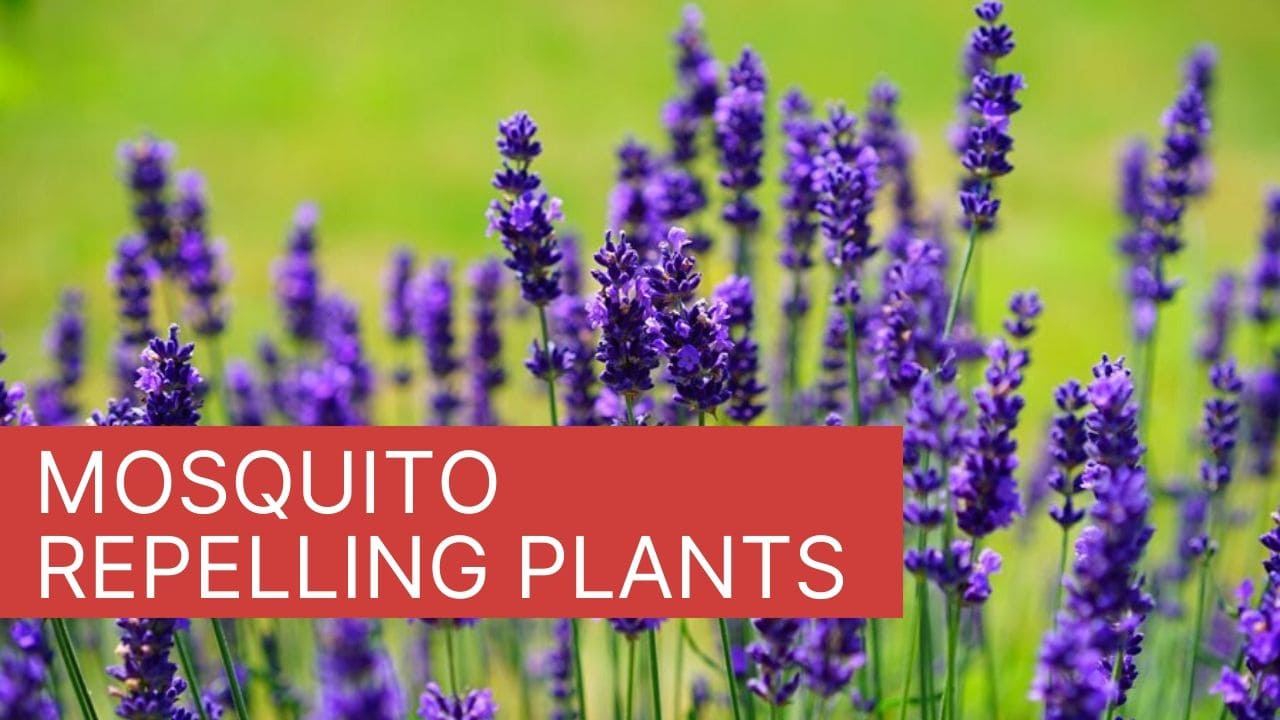For garden owners, the upkeep of their beautiful shrubbery, flowering plants, trees, and maybe even a pond, can definitely be a workout. It’s a serious business that must not be taken lightly if you want to maintain your property’s aesthetics. Apart from this routine and necessary care for your garden, there is also the need to deal with pests. One of these is the pesky mosquito.
Despite the availability of chemically made sprays that you can use in your plants to drive these insects away, there are better alternatives that you can look at, which are natural methods. These techniques will even add to the charm of your garden by emitting a different kind of fragrance to the atmosphere.
This method is by putting in plants in your yard, which are natural mosquito repellents. Other than forcing out these pesky bugs, they provide a sweet aroma to your garden as well. You can place these plants in areas where you don’t want mosquitoes to flock, such as along pathways where people walk or where your seating area is.
The list below is an excellent guide for you to consider when placing these mosquito-repelling plants.
Allium
These plants include the onions and the garlic and others in the bulb family. Like what we typically know of them, they emit a powerful essence that mosquitoes avoid. They have spherical flowers that are pleasant to look at and have tall and graceful stems.
Sage
If you have a fire pit in your garden and have sage plants growing in your yard, you can pick some leaves and throw them into the fire, and the scent that the burnt sage will give off will surely drive the mosquitoes away. If you have friends over, this will help you enjoy your time together without worrying about insects.
Floss Flower
This plant grows annually and thrives best in containers or as bedding in your landscape. They have the chemical coumarin that repels mosquitoes but is dangerous to humans and pets when ingested, so care must be taken when handling floss flowers.
Mint
If you want a safe alternative, mint is a suitable option to chase away mosquitoes, and even ants and flies. If you are dealing with a large group of insects, you can choose to plant more mint since the more robust the stench, the more effectively it can ward off unwanted bugs. Similar to sage, mint can also be dried and made into a natural bug spray.
Bee Balm
If you want to not only drive away from the pesky flies, but you also mean to attract the desirable ones such as the butterflies and the bees, then plant bee balm in your garden. Known also as horsemint or Moranda, this plant can also be crushed to help it give off the oils that are necessary to do its job.
They also make an excellent addition to your landscape as they have vibrant colored flowers in purple, white, lavender, pink, and red.
Scented Geraniums
These geraniums are one of the most widely used mosquito-repellent plants, and they are quite popular because of their scent reminiscent of Citronella, with its lemony fragrance. They have charming blooms that will genuinely beautify any garden and ward off all insects, not just the mosquitoes.
They are prolific plants, especially in climates conducive to their growth in dry, sunny and warm regions. For colder areas, you can grow them in planters or containers and remember to prune them regularly for them to thrive and flourish.
Basil
Like mint, basil is another useful herb that, when planted in your garden, either in planters or on the ground, effectively keeps mosquitoes and other insects at bay. There are various types of this plant, and you can pick and choose which ones will work best in your yard. All the plant needs are sufficient sun, excellent drainage, and damp soil.
Rosemary
Like the geraniums, the rosemary also received the highest recommendations from the PlantShed and the Botanical Garden in New York as a perfect insect-repellent plant. It’s also an herb like the basil and mint that can double as a method to drive those mosquitoes away, including the carrot flies and cabbage moths. They thrive best in dry and hot weather but may survive in planters if you want to have them, but you live in a cold area.
These plants make an appropriate border or decorative shrubs, and you can prune them to keep them healthy. They also make for a great ingredient in your tea or your cooking.
Catnip
This plant is very prolific and can be grown anywhere. It’s a cousin of the mint and may be considered a weed as they tend to be invasive in their growth. If you can manage them, then they will work brilliantly as a mosquito repellent. The State University of Iowa conducted a study that proved that catnip is 10x better than the famous chemical in most repellants called DEET.
Citronella Grass
The Brooklyn Botanical Garden has the highest praises for the Citronella as an insect repellent plant next to catnip. It’s on the top of the list of any garden owners who want to drive away harmful pests. They must be grown in planters as they cannot withstand the cold but maybe planted on the ground in warmer regions where there’s plenty of sun.
The varieties of Citronella that you want to shoot for are the Citronella winterianus and the Cymbopogon nardus, which are the best ones to help you deal with mosquitoes.
Marigolds
It’s effortless to grow these plants, and you can locate them in areas of your home where your family and your guests walk or hang out to ward off mosquitoes. They also make for a fantastic border plant or as part of your vegetable garden.
Apart from mosquitoes, they are also quite useful in scaring off tomato hornworms, squash bugs, Mexican bean beetles, whiteflies, thrips, and aphids.
Lavender
Lavender is very well-known for its amazing fragrance and is the reason why animals in your garden, and insects, stay away from the plant. Its leaves give off the essential oils, which they say can even block the keen sense of smell of a mosquito! It’s quite easy to take care of, and it’s very resistant to dry and hot weather when it has matured into a fully-grown plant, as long as it has adequate drainage.




